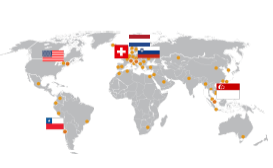July 12, 2021
Sensorimotor conflict tests in an immersive virtual environment reveal subclinical impairments in mild traumatic brain injury (Rao et al., 2020).
Traumatic brain injury (TBI) describes the resulting physical and physiological effects from any event where either direct or indirect damage to the head occurs. There are many potential adverse effects of TBI which can manifest in various forms of physical, sensory, or cognitive deficits which can occur immediately after the event or in the upcoming weeks after. One of the problematic facets of a sustained TBI is that symptoms might manifest in subtle differences which can be difficult to uncover and quantify. As a consequence, it is important to develop testing protocols to highlight these subtle impairments.
The lack of appropriate testing sensitivity was highlighted in a recent study by Rao and colleagues where standard clinical tests were not able to adequately discriminate between healthy controls and TBI patients. Therefore, the researchers developed a protocol utilizing the Computer Assisted Rehabilitation ENvironment (CAREN) whereby various sensory conflicts were engaged through perturbations to the visual scenery or motion platform. The researchers utilized a methodology consisting of spatiotemporal, kinematic, EMG, and acceleration data to characterize gait and balance measures.
The perturbations where multiple sensory conflicts were utilized performed best at discriminating between participant groups, particularly when participants were walking compared to static balance. While both platform-only and visual-only perturbations were still better than standard clinical tests.
Overall, the results of this study are promising for the future of TBI assessment and treatment where the underlying pathologies are difficult to detect through traditional clinical measures.
Read the article here.
- Rao, H. M., Talkar, T., Ciccarelli, G., Nolan, M., O’Brien, A., Vergara-Diaz, G., . . . Quatieri, T. F. (2020). Sensorimotor conflict tests in an immersive virtual environment reveal subclinical impairments in mild traumatic brain injury. Scientific Reports, 10(1), 1-14.


